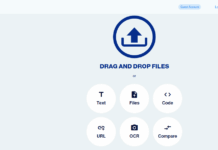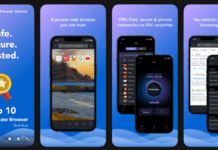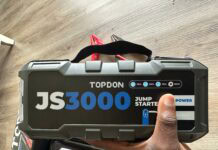Do you want to increase traffic, appeal to search engines, and boost conversions? Consider writing the best SEO meta descriptions. This article shows why meta descriptions still matter today and offers you top tips to create better SEO meta descriptions as SEO Ninjas does.
What Are Meta Descriptions?

Also known as an SEO description, a meta description is an HTML attribute that summarizes a webpage’s content. To understand these points better, let us talk about two other related essential concepts: the search engine’s indexing process and snippets.
The likes of Google and Bing have two major responsibilities: search for more or newer pieces of information online and organize them properly to ensure they answer every person’s query or search correctly.
To do that, they execute these steps:
- Search engines design algorithms called bots or spiders that “crawl” the vast cyberspace, visiting and looking for newly published sites or pages.
- When they land on your page, these crawlers “read” each page and even the metadata. They get to know the keywords, the content’s relevance to your targeted key terms or phrases, and other important information
- They store a copy of that particular page in their search engine index.
- When someone types a query on Google or Bing, their algorithms will sift through all database entries and pick out the most applicable to the query.
The search engines then show these results as snippets, with the following information included in each link:
- Title tag
- URL or web address of your page
- Meta description
Why Do Meta Descriptions Matter in SEO?

Based on the discussions above, you may assume that meta descriptions directly impact SEO. They do not.
However, according to Digital Authority Partners (DAP), meta descriptions still significantly influence your position in the search results.
- They help provide a satisfying user experience (UX). Nothing feels more frustrating than to realize that the description and title tags do not match the content.
- Meta descriptions help drive traffic. People often click on links, especially if the description is catchy and relevant to their query.
- They are essential for voice searches. Since SEO has evolved, so should your techniques. Since most people use natural language when speaking, meta descriptions that incorporate conversational words can help increase traffic to your site.
- These descriptions can enhance your credibility. If your descriptions are clear and precise, they can make potential customers or readers see you as an expert in your field.
In other words, these short descriptions influence the user experience, keyword relevance, and even your expertise and trustworthiness. All these are well-known ranking signals.
7 Tips on How to Write Meta Descriptions

Can you forgo writing meta descriptions? The answer is yes. Google will simply pick some parts of your content to create them.
But even if it seems convenient, it is not advisable.
- Search engines can create a description that does not accurately reflect your content.
- You may rank in the wrong keywords.
It pays to make the descriptions yourself, but it is also equally critical that you write them properly. We have seven tips on how to make a killer meta description, including examples:
1. Keep It Short and Sweet
When writing meta descriptions, brevity is the soul of wit. It should be no longer than 160 characters. Besides, crafting long ones is a waste of time. Search engines cannot display the full text, and most readers will not bother to read it all.
But how do you make these descriptions brief but concise?
- Avoid adding unnecessary information, such as product or location specifications or price details. These are best left for the main page content.
- Write in active voice. It is punchier, more direct, and easier to read. Your audience can quickly grasp the point you are trying to make without having to decode complex sentences.
- Do not stuff keywords. One of the no-nos in SEO, it may negatively affect your SEO ranking. Search engines will think that you are trying to manipulate the results.
2. Write a Unique Description for Every Content
It can be tempting to use the same meta description on multiple pages because it saves time, but doing so is likely to hurt your chances of ranking well in search engines and getting organic web traffic. So it is best to avoid it. Remember that:
- Search engines want to see each page on your website as unique. Using the same meta description for multiple pages, you fail to convince search engines that each page is worth ranking separately.
- It ruins your UX. This lack of originality can deter readers from clicking through once they have already seen a similar paragraph on another page.
Take the time to create unique meta descriptions for each page of your content to reap all the benefits that unique rankings bring.
3. Use Relevant Keywords in Meta Descriptions Wisely
One of the best ways to tell search engines that your content relates to your chosen keyword is to write a meta description that includes it.
Here are some tips on how to do it:
- Choose one primary keyword for your description. It should be the one that relates most to your content.
- Include it at the beginning of the description to ensure that search engines pick up on it.
- You do not have to use all related keywords. Choose two or three more and sprinkle them throughout the meta description.
- Avoid keyword repetition. Repeating a keyword more than once can make your content appear unnatural and unreadable.
- Use high-value keywords. These are long-tail keywords such as “how to write a meta description” rather than short phrases like “meta description.” Brand names also work.
4. Add a Call to Action (CTA)
Your meta description is not only for search engines; it must also pass the human test. Add a call-to-action (CTA) at the end of your meta description to get your audience’s attention. This encourages readers to click through and see what your content has in store.
Here are some examples of CTAs:
- Find out more.
- Learn how to do it.
- Discover the best way to do it.
- Get your free guide now.
5. Perform an A/B Test
An A/B test is a simple way to determine which meta description performs better. You can create two different descriptions and see how they fare against each other regarding click-throughs and conversions.
Further:
- A/B tests measure the effectiveness of CTAs. You can compare two different CTAs to see which resonates more with your audience.
- Use an A/B test to compare the results of descriptions written in active and passive voice. It is a great way to determine which approach works best for your content.
Best Meta Description Examples

Based on these five tips, here are some of the best ways to revise poorly written meta descriptions:
Good: Learn about meta descriptions and how to write them.
Better: Discover the best way to write a compelling meta description that convinces your readers to click through. Get your free guide now!
Good: Find out what you need to know about meta descriptions.
Better: Understand meta descriptions and how they can help you get higher search engine rankings. Learn how to do it now!
Good: Get the inside scoop on meta descriptions.
Better: Gain the knowledge and insights you need to write effective meta descriptions. Download our comprehensive guide today.
Summing Up
Meta descriptions are one of the underrated elements of good SEO. When written well, they can drive traffic, increase engagement, and boost your rankings.
Following the five tips above and taking time to craft unique, targeted descriptions will guarantee that your meta descriptions are working their hardest for you. If you struggle, get help from an experienced digital marketing agency. Their knowledge and experience in the field can help you write the best meta descriptions for your content.


















This guide on SEO meta descriptions is highly useful! On-page SEO is a key component of any optimization strategy because, as you rightfully pointed out, creating enticing and keyword-heavy meta descriptions can determine if your result stands out from the competition on page. What is even more interesting is that a well-written meta description can actually increase the rate with which people click through and ultimately enhance your search ranking. Even the smallest nuances in regards to that can actually make a big difference at businesses like Zinbay on who you are talking to and how. I appreciate the way you distilled these strategies down!